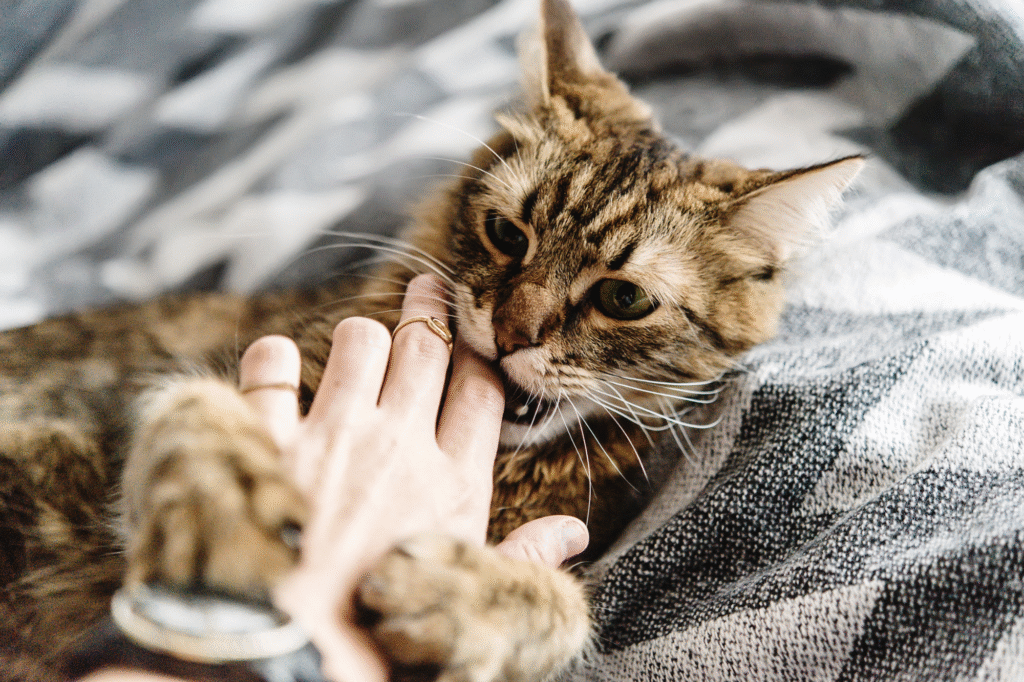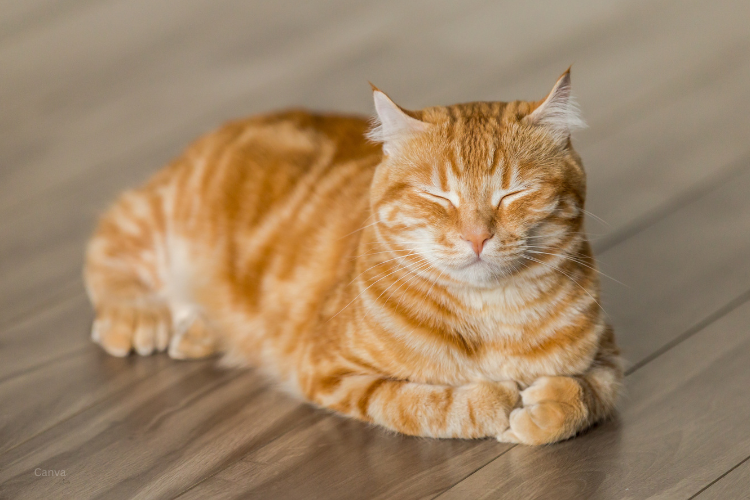Understanding unpredictable reactions in affectionate cats.

Cats can shift from melting into your hands to sinking their teeth into your skin faster than most people expect, and that sudden switch often feels personal even though it rarely is. These moments happen because cats communicate through signals that can be incredibly subtle, and the petting that feels soothing to us may feel overstimulating to them. Recent research shows that emotional arousal in cats escalates rapidly, especially during close contact, which explains why some bites seem to come out of nowhere. With a little insight these confusing moments start to make sense, and nine key explanations help clarify the pattern.
1. Cats can experience overstimulation very quickly.

Sometimes a cat enjoys gentle affection until a flood of sensory input builds too fast for comfort, and the petting suddenly feels like too much. Muscles tense, the tail flicks, and a bite becomes a quick way to stop the interaction. According to the American Association of Feline Practitioners, cats can become overstimulated from repeated touch even when they appear relaxed earlier in the moment. Once that threshold is crossed, biting ends the situation on their terms and sets the stage for the next reason these abrupt reactions happen.
2. Sensitive nerve areas become uncomfortable during prolonged touch.

Certain spots on a cat’s body contain dense clusters of nerve endings, and repetitive strokes can shift from pleasant to irritating without warning as discovered by Cornell University’s College of Veterinary Medicine. The cat may not show signs until the discomfort spikes, which is why a bite can seem sudden. When those areas are involved the shift happens fast, and the reaction bleeds into more complex emotional territory that connects to the next explanation.
3. Past negative experiences shape their petting tolerance.

A cat that once learned touch could hurt might guard itself even during affectionate moments, and a bite becomes a defensive reflex. Trauma can be subtle, such as rough handling from a previous home or medical procedures that created touch avoidance. As stated by the American Veterinary Medical Association, early interactions influence later comfort with physical contact. This emotional residue blends with the cat’s current mood which naturally leads into social patterns that influence these unpredictable shifts.
4. Some cats want control during physical interaction.

Many cats prefer affection on their own timeline, and a bite can simply mean they have ended the session. When a person continues petting after the cat feels finished it may respond swiftly to reclaim control. This dynamic often shows up in independent cats that enjoy closeness but dislike prolonged handling.
5. Changes in mood can trigger abrupt reactions.

Cats shift emotional states quickly due to their sensitive nervous systems. A sudden noise, movement, or buildup of excitement during petting can flip their mood, making the next stroke feel intrusive. That moment of internal change can prompt a bite even if everything seemed calm a few seconds earlier.
6. Pain or hidden medical issues can alter behavior instantly.

Underlying discomfort from arthritis, dental problems, or muscle tension can turn petting into an unpleasant sensation, and the cat reacts instinctively. If a bite happens after touching a specific spot or after only light contact, pain is often involved. These medical triggers can flicker in and out depending on the day.
7. Redirected energy can spill over into biting.

When a cat is overstimulated by something in the environment, such as outdoor activity or nearby sounds, petting may intersect with that tension. The bite is not about the person but about the pent up energy that needs release. These moments often occur during high excitement or after a burst of activity.
8. Petting can interrupt their instinctive alertness.

A relaxed cat may suddenly sense something around it that sparks mild vigilance. Petting at that moment can feel intrusive because it conflicts with the cat’s need to stay aware. A quick bite reasserts their focus on the environment and resets their sense of control.
9. Some cats prefer short bursts of affection only.

Certain personalities enjoy affection briefly but dislike extended sessions. Their tolerance has a natural limit, and once reached the next touch may feel irritating. The bite reflects their preference for quick, controlled interactions rather than ongoing contact.
